US Products That Are Illegal To Sell in Other Countries
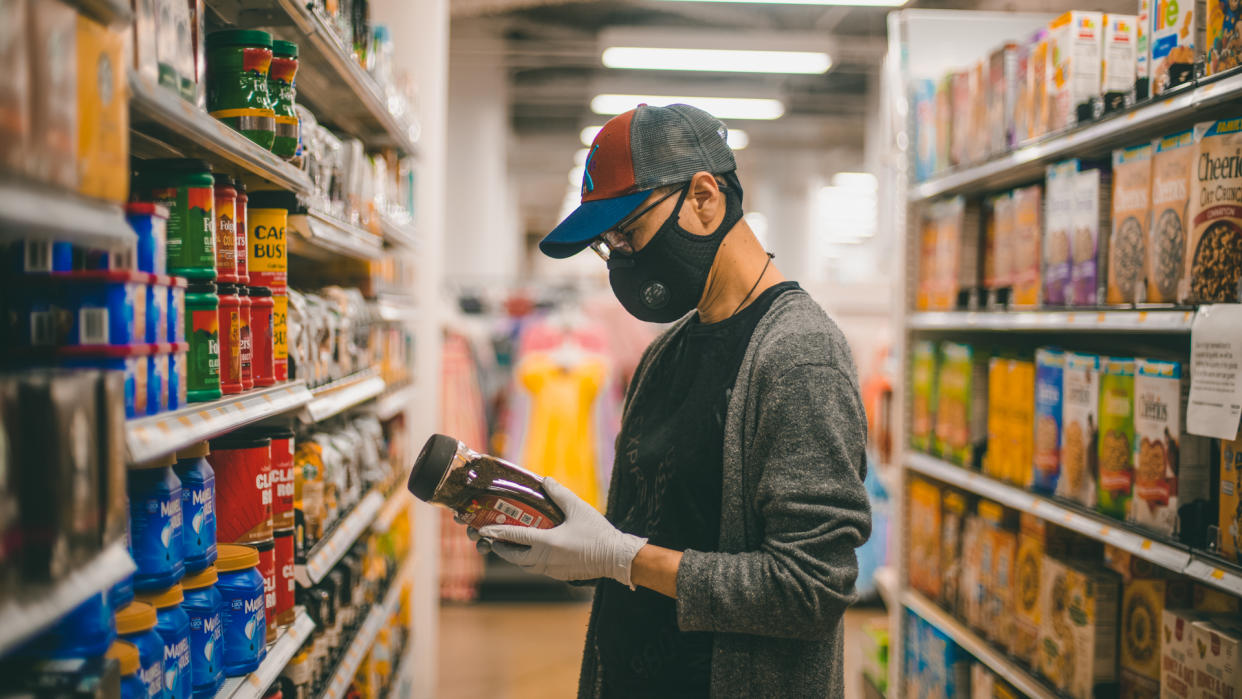
You are what you eat, as the old saying goes, but you might be eating more than you realize — especially if you’re in the U.S. Synthetic growth hormones, chemical additives and even known poisons such as arsenic are rather run-of-the-mill in the land of the free. Though these manufactured elements prove useful and convenient, particularly for large-scale factories and corporate farms, there’s no shortage of research confirming their dangerous health risks.
Read: 10 Foods and Products Banned by the FDA
These cons, if you will, may be palatable to the American manufacturer and even their consumers, but foreign countries — particularly those in the European Union — have zero appetites for toxins, no matter how tasty. Dedicated to continuing a culture with less fast food and more whole foods, regions that ban risky ingredients tend to see an all-around healthier population, which ultimately helps people live longer and be less at risk for chronic illness.
There’s a good reason these hazardous methods and ingredients aren’t allowed across the border, so if you have the time and money to cut them out of your diet, you’d be better off. Here’s a look at 15 products that are commonly found in U.S. supermarkets and fast-food chains that are literally legally prohibited from other countries.
Last updated: March 25, 2021
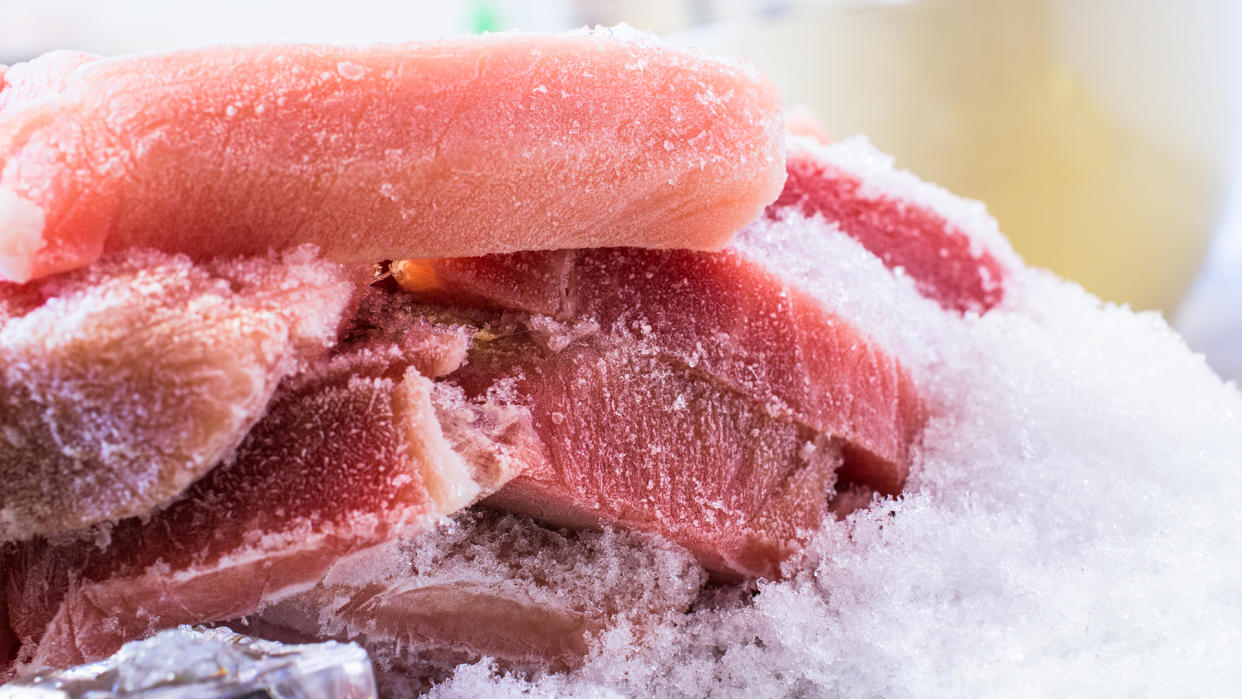
Ractopamine
Many foreign regions, including Europe, China and Russia, have banned pork from the U.S. because it may contain ractopamine, a drug fed to pigs to make them grow more and grow faster. There is no evidence that shows this drug is safe for humans to consume, but there is data suggesting it can be harmful to humans and animals, which are known to suffer tremors, lesions and deterioration among other lethal side effects. In 2020, the Animal Legal Defense Fund, Food Animal Concerns Trust and the Center for Biological Diversity filed an urgent petition with the Food and Drug Administration to halt the agency’s approval of ractopamine as the pandemic prompted shutdown and delays in processing plants.
See: When Consumers Boycott Businesses, Does It Work?

Potassium Bromate
Ready-made bread products and breakfast sandwiches are staples in American households — especially around Thanksgiving — but some of these doughy delights contain potassium bromate, a food additive that is used in processing flour to get it whiter and fluffier. Lab testing on animals of potassium bromate found that the additive causes an increased risk for tumors (both malignant and benign) and other adverse effects. California is the only state in the U.S. to be somewhat proactive in restricting potassium bromate by slapping warning labels on products that contain it, but in other countries, it is banned altogether.
Find Out: 50 Most Outrageous Fines You Never Knew Existed

Artificial Food Dyes
One of the more well-known taboo food additives, artificial food dyes are largely permitted in other countries. The European Union requires at minimum a warning label on food products containing artificial dyes such as Yellow 5 and Red 40, among several other shades. Austria, Finland, France, Norway, Austria and the U.K. have flat-out banned these colorful substances which have been linked to various severe health effects including birth defects, organ damage and cancer.
More: 5 Reasons to Stop Being So Cheap
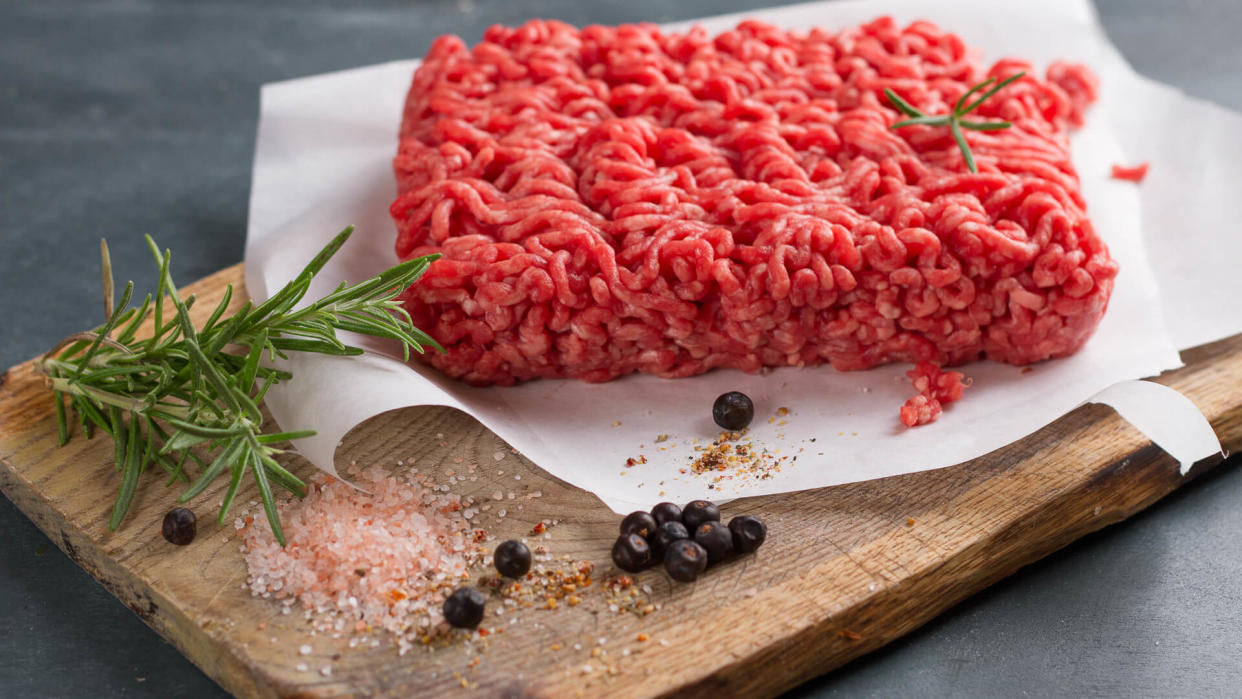
Beef That Contains Synthetic Growth Hormones
A big, juicy steak sounds a lot less appealing when considering that it may contain Trenbolone acetate, Zeranol and Melengestrol acetate — synthetic growth hormones used to boost bovine growth. Research on these stimulants has linked them to an elevated risk for breast and prostate cancer, which is why so many foreign countries frown upon beef made in the U.S. If you insist on eating beef, make sure you buy it organic, as that indicates that artificial growth hormones were not administered to the cow before it was slaughtered.
Read: Goods and Services That Will Be More Expensive in 2021
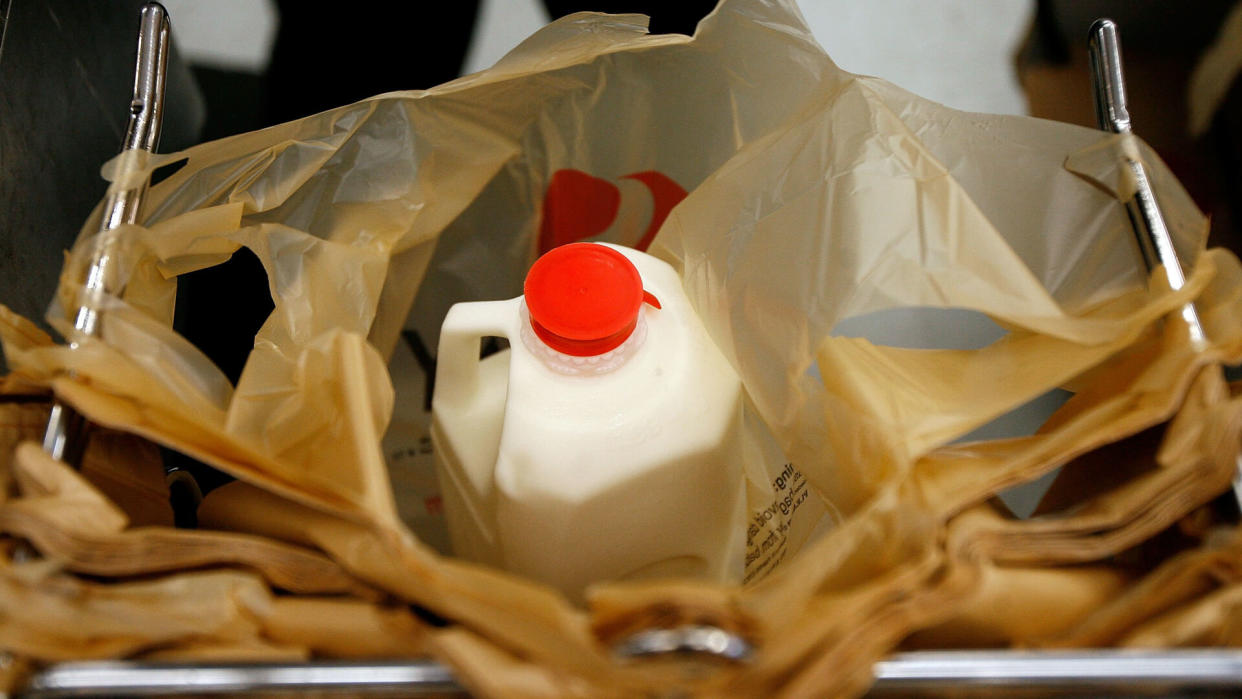
Milk That Contains rBGH or rBST
Got antibiotics? That’s what Europe and Canada are asking about milk made in the U.S., where corporate cattle farms tend to pump cows full of the synthetic growth hormone rBGH (aka rBST). This manufactured hormone is designed to pump up milk production in dairy cows. Consuming it can lead to an increased risk of cancer, which is why other countries ban milk that contains it. If you want to dodge this toxic substance, read milk labels that clearly list ingredients and/or buy organic milk.
See: How Well Do You Know How Much These Common Items Cost in the US?
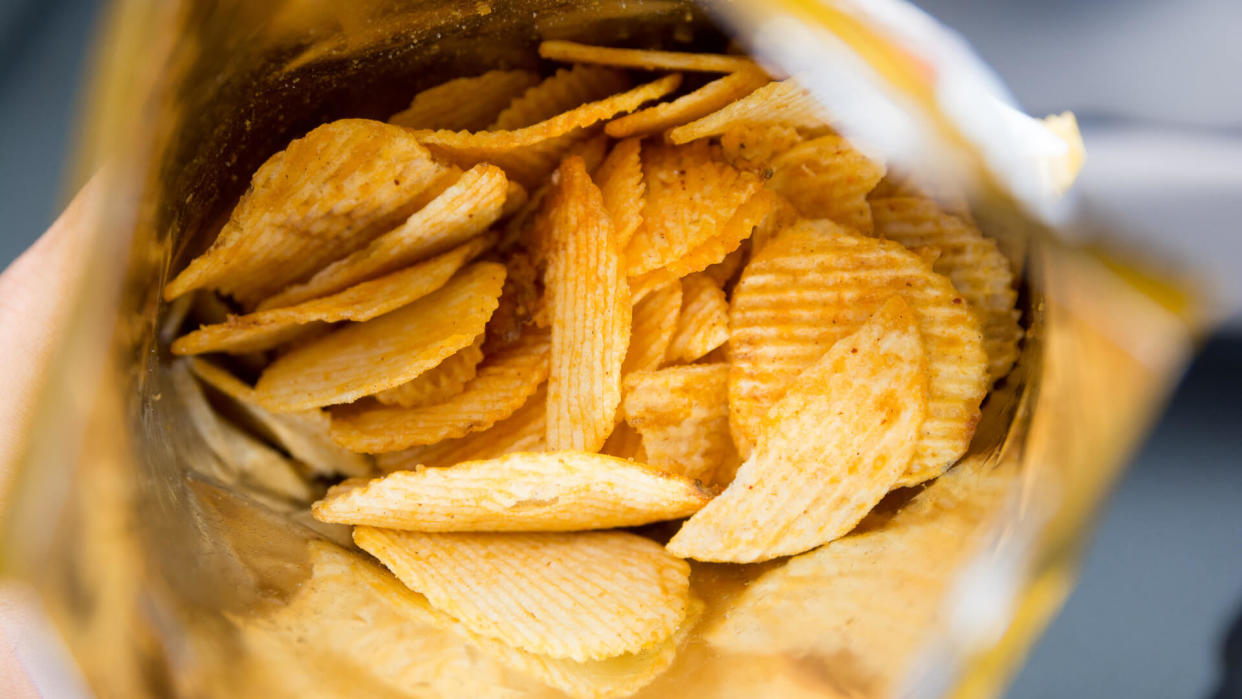
Olestra (aka Olean)
Ever wondered whether fat-free potato chips were too good to be true? Well, in the health sense they are. Food companies like Frito-Lay went crazy over Olestra (Olean) in the mid to late ‘90s, once the FDA gave it the green light as a food additive. While Olestra does remove fats from food, it also, in a sense, removes essential vitamins from the body by rendering it unable to absorb them. Seeing as the icky chemicals can cause stomach cramping and bowel problems, they’re banned in the U.K. and in Canada, but still totally legal as a food additive in the U.S.
Find Out: These 16 New Food Companies Are Changing the Way We Eat
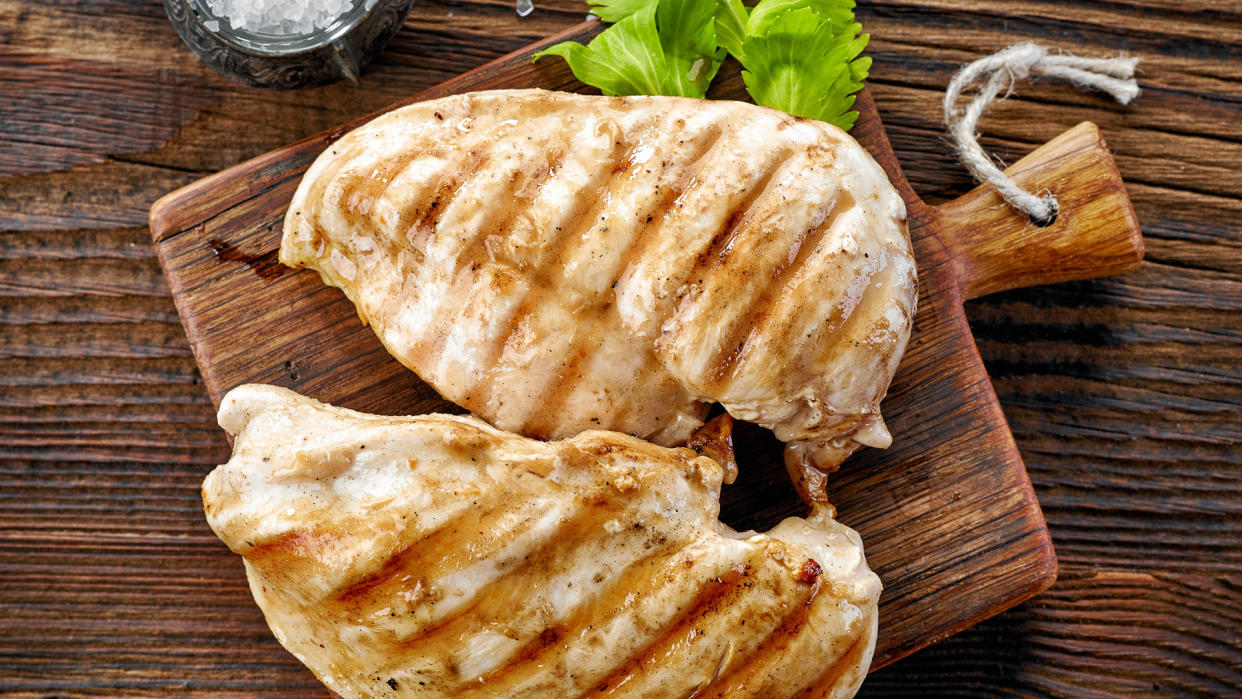
Chicken That Contains Arsenic
What harm can a little arsenic do? Countries other than the U.S. have a decent answer to that question. But over here, corporate farms like to season poultry with the famous poison because it kills parasites, accelerates a chicken’s growth and enhances the color of their flesh. Given arsenic’s tendency to cause an array of cancers, the European Union has banned arsenic-fed poultry commonly found in the U.S.
More: 18 Deadly Corporate Mistakes and the Companies That Paid the Price

Chicken Washed in Chlorine
If you don’t like the idea of having your chicken dinner laced with arsenic, how do you like knowing that your chicken was washed in chlorine? If you don’t — or can’t afford — to buy organic chicken, your factory-farmed poultry might smell ever so faintly of the community pool in summer. This heavy-duty cleaning practice, deemed perfectly safe by the USDA and the FDA, is banned in the EU and the U.K.
Read: The Biggest Changes to Our Consumer Habits as a Result of COVID-19
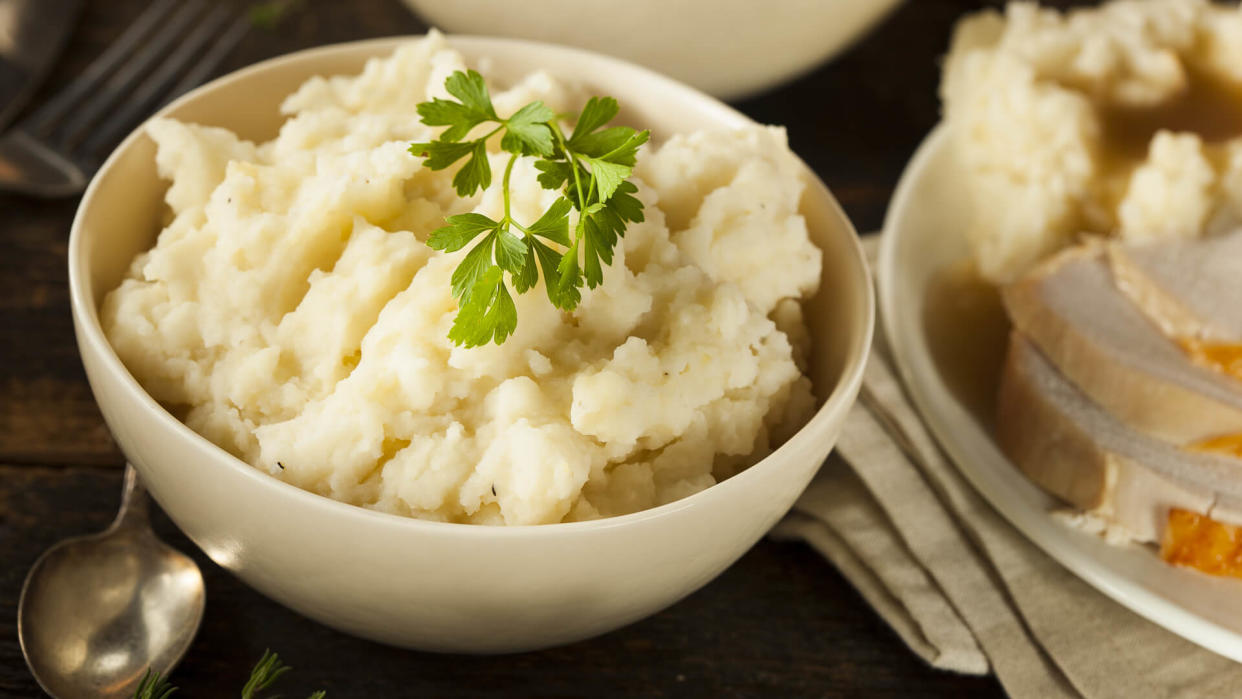
BHA and BHT
BHA and BHT can be found in droves of American products, from cereal to chewing gum, instant mashed potatoes to vegetable oil. Many food companies have a penchant for these two preserving agents as they help extend the shelf life of their products. But you won’t find those food companies in Europe or the U.K. Both regions ban the additive that some research has linked to cancer.
See: 40 Supermarket Buys That Are a Waste of Money
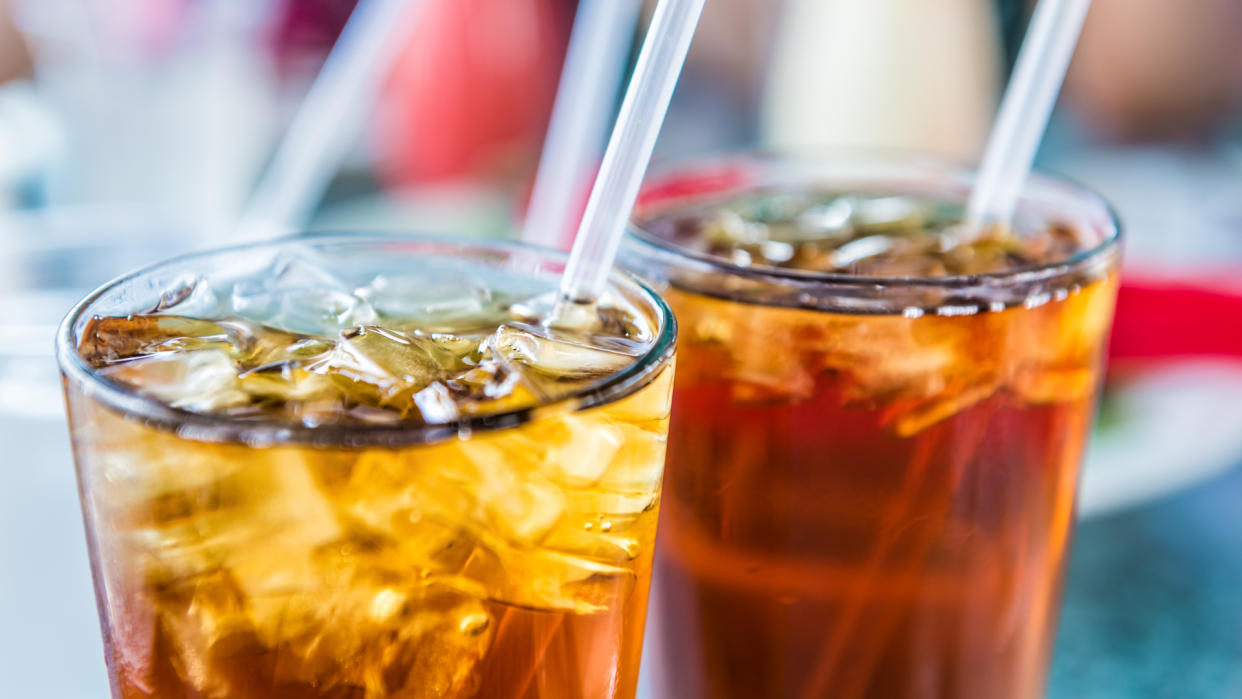
Brominated Vegetable Oil
We already know that sports drinks and sodas are often high in sugar, sodium and calories — but we’re generally less informed about other dangerous contents like brominated vegetable oil. The man-made chemical that keeps oil from floating to the top of your beverage has been largely phased out in the U.S. because of its adverse health effects (including brain development problems in children, kidney failure and cancer, among other things), but other countries have been ahead of the game, flat-out banning this ingredient.
Find Out: Businesses That Millennials Have Killed (and Why It’s for the Best)
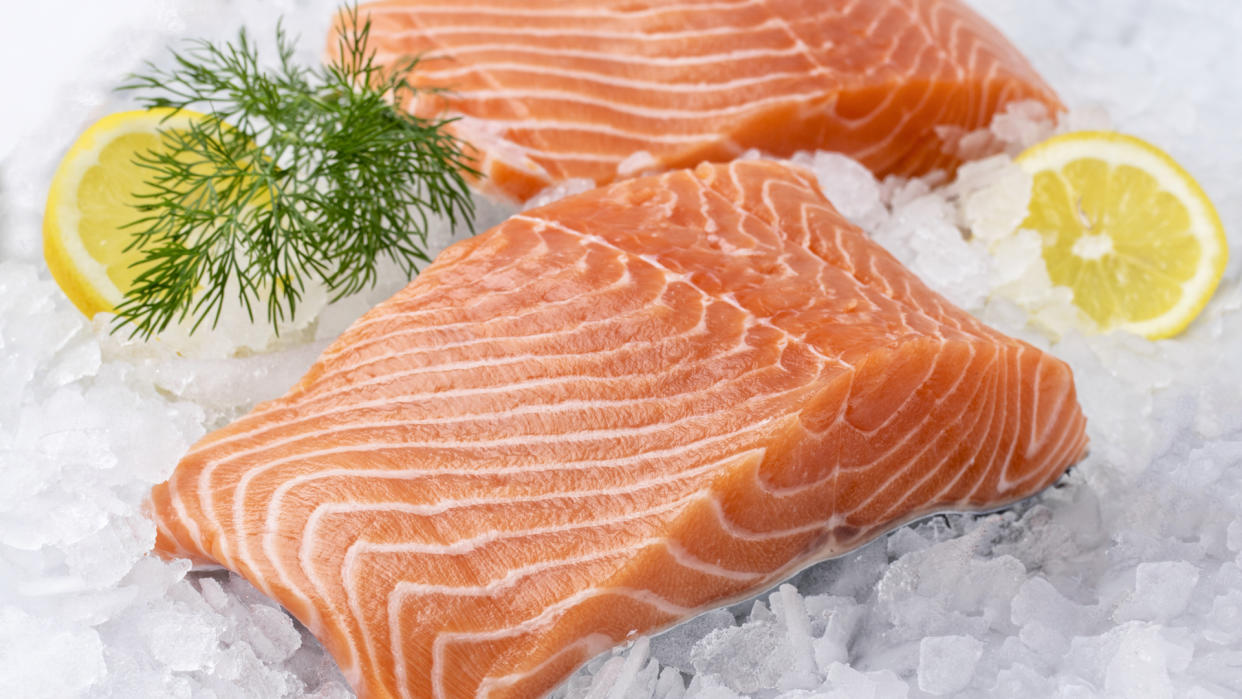
Farmed Salmon
Farmed salmon is cheaper than wild salmon — for a disturbing reason. The farmed stuff tends to be loaded with pollutants and antibiotics, which can lead to health problems, including hormonal, stomach and thyroid troubles. While all salmon should be eaten in moderation because of potential mercury buildup, farmed salmon is particularly dodgy, which is why countries like Australia do not allow it.
More: How Animal Conservation Can Save the World Money

GMOs
A fearsome buzzword in the health food world for decades, genetically modified organisms (GMOs) are a red flag for many consumers. But despite increased public awareness around research confirming that GMOs put people at profound risk for toxicity and immunosuppression, to name just a couple of known evils, GMOs are still legal in the U.S., and not until 2022 will labeling of products containing GMOs be required. The European Commission has given countries the choice of opting out of GMOs, and a number of countries including Austria, Bulgaria, Denmark, Italy, France, Greece, Germany, Hungary, the Netherlands, Latvia, Lithuania, Luxembourg, Poland, Slovenia, Italy and Croatia have implemented a full ban on GMOs. Some counties in California have banned GM crops. Hopefully, more regions will follow.
Read: 30 Jobs That Didn’t Exist 30 Years Ago

Azodicarbonamide
Azodicarbonamide can be found in many foods such as frozen meals, baked goods, and even in rubber and plastic products like shoes and yoga mats. It’s also common in bread served at fast-food joints. Banned in Australia, much of Europe and the U.K., this chemical compound poses health risks including respiratory problems, skin irritation, immunity issues and other problems. Though Azodicarbonamide is not essential to making the products it is added to, the FDA has yet to banish it from the American diet.
See: 25 Cheap Frozen Foods That Are Actually Good for You

Carrageenan
Made from red algae and seaweed, Carrageenan sounds almost romantically natural and can be used in foods as a thickening or gelling agent. Though it’s been used for hundreds of years and is indeed organic, there’s damning health research around Carrageenan, suggesting that it is not necessarily safe to eat. It’s been linked to IBD, IBS, rheumatoid arthritis and colon cancer and is thus banned in the European Union.
Find Out: 30 Ways Shopping Will Never Be the Same After the Coronavirus
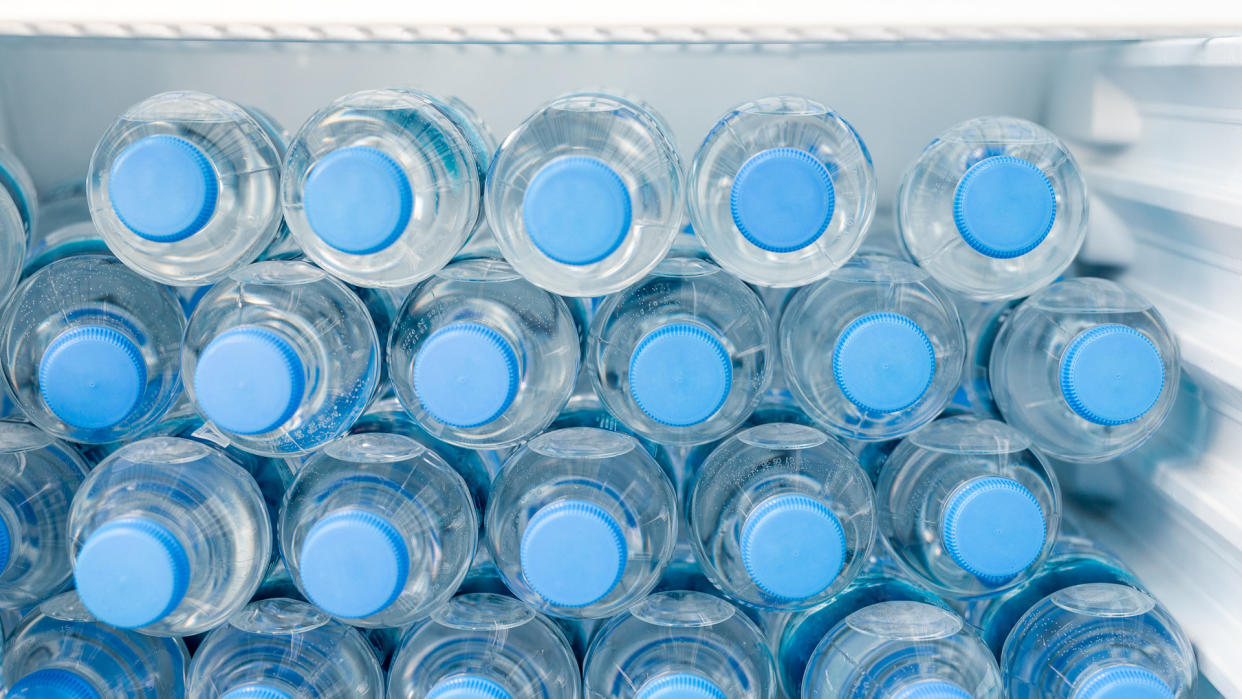
BPA
Another emerging no-no in the world of U.S. consumption is BPA. This industrial chemical, frequently found in plastics that store beverages and food, has been overtly linked to a list of adverse health effects including high blood pressure and fetal development. You’ll notice more and more products marketed as “BPA-free,” which is a step in the right direction, but countries like France are miles ahead, banning BPA altogether.
More From GOBankingRates
This article originally appeared on GOBankingRates.com: US Products That Are Illegal To Sell in Other Countries
